Governance sub-menu
Contents of JProcRSNSW, Vol. 155, Part 2, December 2022
The complete Volume 155, Part 2, December 2022.
Robert E. Marks
Editorial: Solar power, fusion, and snapping shrimp.
Journal & Proceedings of the Royal Society of New South Wales 155: 125-130
Bientennial Celebrations:
The Bicentennial Garden Party, 12 March 2022.
Journal & Proceedings of the Royal Society of New South Wales 155: 131-133
Programme for the Gala Dinner, 24 June 2022.
Journal & Proceedings of the Royal Society of New South Wales 155: 134-137
Susan Pond.
President's Opening Remarks.
Journal & Proceedings of the Royal Society of New South Wales 155: 138-142
The Governor, Margaret Beazley.
Patron's Address.
Journal & Proceedings of the Royal Society of New South Wales 155: 143
Alan Finkel.
After Dinner Address.
Journal & Proceedings of the Royal Society of New South Wales 155: 144-151
The Governor-General, David Hurley.
Governor General's Address.
Journal & Proceedings of the Royal Society of New South Wales 155: 152
Greetings from Around the World.
Journal & Proceedings of the Royal Society of New South Wales 155: 153-159
John Hardie.
The Society's NEXUS Exhibition, 2021-2022.
Journal & Proceedings of the Royal Society of New South Wales 155: 160-163
The Admiralty House Vice-Regal Reception, 7 November 2022.
Journal & Proceedings of the Royal Society of New South Wales 155: 164-167
The 2022 Millennium Technology Prize Lecture
Martin Green.
Silicon solar cells to power the future.
Journal & Proceedings of the Royal Society of New South Wales 155: 168-181
Submitted Paper
Dean Rickles.
Quis custodiet ipsos custodies? From quantum gravity to second-order cybernetics.
Journal & Proceedings of the Royal Society of New South Wales 155: 182-188
Invited Papers
Peter Shergold.
Lessons from a pandemic.
Journal & Proceedings of the Royal Society of New South Wales 155: 189-192
Brian Schmidt.
Building Australia's AUKUS-ready workforce.
Journal & Proceedings of the Royal Society of New South Wales 155: 193-197
Andrew Blakers, Anna Nadolny, Ryan Stocks.
The Bluefield Pumped Hydro Energy Storage Atlas.
Journal & Proceedings of the Royal Society of New South Wales 155: 198-201
Anthony C. Gill and Kelsey McMorrow.
Australian Seashores,,an exhibition.
Journal & Proceedings of the Royal Society of New South Wales 155: 202-209
PhD Thesis Abstracts:
Rachelle Balez.
The intersection of nitrosative stress, ferroptosis and aberrant calcium signalling in Alzheimer's disease
Journal & Proceedings of the Royal Society of New South Wales 155: 210-211
Pauline Bomball.
Deference and intervention in the characterisation of work contracts
Journal & Proceedings of the Royal Society of New South Wales 155: 212
Shefali Christopher.
Risk factors for running-related pain after childbirth
Journal & Proceedings of the Royal Society of New South Wales 155: 213-214
Lara Rose Cullinane.
The structure and kinematics of the Magellanic stellar periphery
Journal & Proceedings of the Royal Society of New South Wales 155: 215-216
Aeson Luis Dela Cruz.
Examining the role of auditor-audit firm and auditor-client relationships on auditors' professional skepticism
Journal & Proceedings of the Royal Society of New South Wales 155: 217-219
Dzung Phuong Do-Ha.
Modelling neuronal excitability changes in ALS using iPSC-derived motor neurons and astrocytes
Journal & Proceedings of the Royal Society of New South Wales 155: 220
Bongchan Jeong.
Investigation of occupant behaviour in residential buildings
Journal & Proceedings of the Royal Society of New South Wales 155: 221-222
Vani Kakar.
Beauty ideals and body image among adolescent girls: a cross-cultural study
Journal & Proceedings of the Royal Society of New South Wales 155: 223-224
Angus Leahy.
Teacher-facilitated high-intensity interval-training intervention for older adolescents: evaluation of the Burn 2 Learn program
Journal & Proceedings of the Royal Society of New South Wales 155: 225-228
Yanan Li.
Contributions to blockchain-based security protocols
Journal & Proceedings of the Royal Society of New South Wales 155: 229-230
Linda Mitchell.
Fluorescent sensor arrays to monitor heavy metals and therapeutic drugs in biological systems
Journal & Proceedings of the Royal Society of New South Wales 155: 231-232
Ahmed Mostafa Taha Mohamed.
Coordination between chromosome translocation and peptidoglycan remodelling during spore development
Journal & Proceedings of the Royal Society of New South Wales 155: 233
Bach Long Nguyen.
Cooperative vehicle-to-everything communications for intelligent transportation system applications
Journal & Proceedings of the Royal Society of New South Wales 155: 234-235
Annelise Roberts.
Inheriting the disavowed: nuclear testing and its cultural symptoms in Australia
Journal & Proceedings of the Royal Society of New South Wales 155: 236-237
Giacomo Tendas.
Topics in the theory of enriched accessible categories
Journal & Proceedings of the Royal Society of New South Wales 155: 238
Andrea Johanna Torres Robles.
Impact of community pharmacist interventions to manage medication adherence
Journal & Proceedings of the Royal Society of New South Wales 155: 239-240
Erin Jade Turner.
Mapping the graphic lexicon of Emigre magazine: a visualisation framework for the study of visual communication design artefacts and collections
Journal & Proceedings of the Royal Society of New South Wales 155: 241-242
Nate Zettna.
Advancing knowledge on the antecedents and outcomes of team silence
Journal & Proceedings of the Royal Society of New South Wales 155: 243
The 2022 Proceedings:
The 2022 Royal Society Prize winners; Events of 2022; Gazetted Fellows in 2022
Journal & Proceedings of the Royal Society of New South Wales 155: 244-257
ISSN (online): 2653-1305
Events Calendar for 2024
 Please check this page regularly since the program is under ongoing development.
Please check this page regularly since the program is under ongoing development.
Most recent update: 15 April 2024
Follow the links below for meetings held by the Society in Sydney, in Newcastle by the Hunter Branch, in Mittagong by the Southern Highlands Branch, and in Western NSW by the Western NSW Branch.
- Sydney Meetings
- Hunter Branch Meetings
- Southern Highlands Branch Meetings
- Western NSW Branch Meetings
Sydney Meetings 2024
|
Wednesday, 6.30 pm AEDT |
1319th OGM and Open Lecture Venue: Metcalfe Theatre, State Library of NSW Topic: Productivity: what it is, and why it matters |
|
Wednesday, 6.30 pm AEDT |
Annual Four Societies' Lecture 2024 Venue: Metcalfe Theatre, State Library of NSW Resilience before Readiness — "... for the want of a horseshoe nail" |
|
Friday, 6.30 pm AEDT |
RSNSW Annual Dinner and Presentation of Awards Venue: Strangers' Room, Parliament House, 6 Macquarie Street, Sydney After Dinner Speaker |
|
Wednesday, 6.30 pm AEDT |
Ideas@theHouse: March 2023 Venue: Government House, Sydney (by formal invitation) and live-streaming Shakespeare on politics: what can we learn? |
|
Wednesday, 6.30 pm AEDT |
RSNSW Student Award and Early Career Citation Presentations 2023 Venue: Western Sydney University, Parramatta South Campus Dr Jaime Alvaraado-Montes, Ms Sasha Bailey, Mr Jayden McKinnon |
|
Wednesday, 5.15 for 6.00 pm AEDT |
Frontiers of Science Forum 2024 Venue: Concord Golf Club, 190 Majors Bay Road, Concord Exploring major discoveries and theories in physics, mathematics, biology, and chemistry |
|
Wednesday, 6.30 pm AEST |
157th Annual General Meeting Venue: Metcalfe Theatre, State Library of NSW Putting the Civil Back in Civil Society |
|
Wednesday, 6.30 pm AEST |
1321st OGM and Open Lecture Venue: Zoom Webinar Brain Health Equity: a new frontier for healthy longevity |
|
Friday, 3.00 pm AEST |
Joint RSNSW and State Library of NSW Special Event: May 2024 Venue: Maps Room, State Library of NSW (Mitchell Building, Shakespeare Place)) On the history of Russian conflict with Ukraine |
|
Wednesday, 6.30 pm AEST |
1322nd OGM and Open Lecture Venue: Metcalfe Theatre, State Library of NSW RNA and me: from the origins of life and nanomedicine to building an RNA ecosystem |
|
Wednesday, 6.30 pm AEST |
1323th OGM and Open Lecture Venue: Zoom Webinar Topic: TBA |
|
Thursday, 6.30 pm AEDT |
Ideas@theHouse: July 2024 Venue: Government House, Sydney (by formal invitation) and live-streaming Topic: TBA |
|
Wednesday, 6.30 pm AEST |
1324th OGM and Open Lecture Venue: TBA Topic: TBA |
|
Wednesday, 6.30 pm AEST |
1325th OGM and Open Lecture Venue: Zoom Webinar Topic: TBA |
|
Wednesday, 6.30 pm AEDT |
1326th OGM and Open Lecture Venue: Metcalfe Theatre, State Library of NSW Topic: TBA |
|
Thursday, 6.30 pm AEDT |
Ideas@theHouse: October 2024 Venue: Government House, Sydney (by formal invitation) and live-streaming Topic: TBA |
|
9.00 am – 5.00 pm, 8.30 am AEDT |
Royal Society of NSW and Learned Societies Annual Forum 2024 Venue: Government House, Sydney (by formal invitation) and Live Streaming Theme: TBA |
|
Wednesday, 6.30 pm AEDT |
1328th OGM and Open Lecture Venue: Metcalfe Theatre, State Library of NSW Topic: TBA |
Hunter Branch Meetings
The Hunter Branch Event Program for 2024 is still under development.
|
Monday, 19 February 5.15 pm AEDT |
Joint RSNSW Hunter Branch and Australian Decorative And Fine Arts Society—Newcastle Lecture Exploring the Holographic |
|
Thursday, 11 April 6.00 pm AEST |
Hunter Branch Meeting 2024-2 Venue: The King Street Room, NEX Newcastle Exhibition and Convention Centre, Newcastle West Conservation, Frogs, and Citizen Science |
|
Friday, 19 July 6.00 pm AEST |
Hunter Branch Meeting 2024-3 Venue: The University Conservatorium, Laman Street, Cooks Hills, Newcastle, NSW 2302 Are you what you eat? Discovering the science of personalised nutrition |
|
Thursday, 15 August 6.00 pm AEST |
Hunter Branch Meeting 2023-4 Venue: The King Street Room, NEX Newcastle Exhibition and Convention Centre, Newcastle West Topic: TBC |
|
Thursday, 24 October 6.00 pm AEDT |
Hunter Branch Meeting 2023-5 Venue: The King Street Room, NEX Newcastle Exhibition and Convention Centre, Newcastle West Topic: TBC |
Southern Highlands Branch Meetings
The Southern Highlands Branch Event Program for 2024 is still under development.
|
Thursday, 6.00 pm AEDT |
Southern Highlands Branch Meeting 2024-1 venue: RSL Mittagong, Carrington Room Topic: Ten novels that changed the world |
|
Thursday, 6.30 pm AEDT |
Southern Highlands Branch Meeting 2024-2 Venue: RSL Mittagong, Carrington Room The antiquity of life: Oldest (3.7 billion years old) stromatolite fossils discovered in Greenland |
|
Thursday, 6.30 pm AEST |
Southern Highlands Branch Meeting 2024-3 Venue: RSL Mittagong Webb's wondrous window on the Universe |
|
Thursday, 6.30 pm AEST |
Southern Highlands Branch Meeting 2024-4 Venue: RSL Mittagong Latest advances in radiation therapies for cancer |
|
Thursday, 6.30 pm AEST |
Southern Highlands Branch Meeting 2024-5 Venue: RSL Mittagong Machines behaving badly: the morality of AI |
|
Thursday, 6.30 pm AEST |
Southern Highlands Branch Meeting 2024-6 Venue: RSL Mittagong Topic: TBA |
|
Thursday, 6.30 pm AEST |
Southern Highlands Branch Meeting 2023-7 Venue: RSL Mittagong Topic: TBA |
|
Thursday, 6.30 pm AEST |
Southern Highlands Branch Meeting 2024-8 Venue: RSL Mittagong Topic: TBA |
|
Thursday, 6.30 pm AEST |
Southern Highlands Branch Meeting 2024-9 Venue: RSL Mittagong Topic: TBA |
|
Thursday, 6.30 pm AEST |
Southern Highlands Branch Meeting 2023-9 Venue: RSL Mittagong Topic: TBA |
Western NSW Branch Meetings
The Western NSW Branch Event Program for 2024 is still under development.
|
Wednesday, 6.00 pm AEDT |
Western NSW Branch Meeting 2024-1 venue: Wagga Wagga campus (Riverina Playhouse), Charles Sturt University and live-streaming Parasites, Australia's silent threat— |
|
Wednesday, 6.00 pm AEDT |
Western NSW Branch Meeting 2024-2 Venue: Port Macquarie campus (The Theatre, Building 802, Room 233/7, Major Innes Road), Charles Sturt University and live-streaming Out of Africa Arabia: how ancient human history gave us modern lifestyle diseases |
|
Wednesday, 6.00 pm AEST |
Western NSW Branch Meeting 2024-3 Venue: Orange campus (Building 1008), Charles Sturt University and live-streaming Onsite molecular testing methods and devices for healthcare and agriculture |
|
Wednesday, 6.00 pm AEST |
Western NSW Branch Meeting 2024-4 Venue: Wagga Wagga campus (Riverina Playhouse), Charles Sturt University and live-streaming Adapting to change—invasive plants and pests take up the challenge |
|
Wednesday, 6.00 pm AEDT |
Western NSW Branch Meeting 2024-5 Venue: Dubbo campus, Charles Sturt University and live-streaming Topic: TBA |
|
Tuesday, 6.00 pm AEDT |
Western NSW Branch Meeting 2024-6 Venue: Orange campus (346 Leeds Parade), Charles Sturt University and live-streaming Rural and Regional Health |
Recent Award Winners
Each year, the Society makes a number of awards, mainly in the fields of science, that are among the oldest and most prestigious awards in Australia.
Awards Winners 2021
The Awards and Citations for 2021 were announced at the 1300th Ordinary General Meeting of the Society, held on Wednesday, 2 February 2021.
These included the Cook Medal, which is the Society’s highest honour, awards for research and scholarly excellence, and awards which recognise substantial service to the Society.
The award winners are listed below, together with links to information about the awards and their recipients.
The Cook Medal
James Cook Medal — Scientia Professor Rose Amal AC FRSN
Awards for Research Excellence
Clarke Medal and Lecture (Zoology) — Distinguished Professor Emeritus Robert John Aitken FRSN
Edgeworth David Medal — Dr Arnold Lining Ju
History and Philosophy of Science Medal — Professor Dean Rickles
Poggendorff Lectureship — Professor Richard Trethowan
Pollock Memorial Lecture — Professor Geraint Lewis FRSN
Warren Prize (Medal and Lectureship) — Dr Noushin Nasiri
Jak Kelly Award— Mx Zain Mehdi
Royal Society of NSW Scholarships — Mr Sajad Abolpour Moshizi, Mr Harry Marquis, and Mr Kevin (The Huong) Chau
Awards for Service to the Society
Royal Society of NSW Citation — The Honourable John Dowd AO QC FRSN
Royal Society of NSW Citation — Mr Hubert Regtop MRSN
Royal Society of NSW Citation — Mr Richard Wilmott MRSN
James Cook Medal
Scientia Professor Rose Amal AC FRSN FAA FTSE
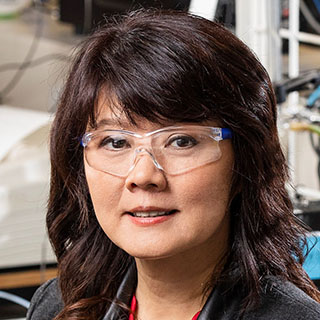
The James Cook Medal is awarded periodically by the Royal Society of New South Wales for outstanding contributions to science and human welfare in and for the Southern Hemisphere.
Professor Amal AC FRSN FTSE FAA, Scientia Professor of Chemical Engineering at UNSW (Sydney), is an acknowledged international leader in the field of chemical engineering. Her research has changed the way in which the properties of catalysts are understood, with her scientific breakthroughs in catalysis leading to real-world applications for sustainable environment and energy applications. In particular, she is renowned for her photocatalysis breakthroughs for large-scale industrial water treatment, and the generation of ‘clean hydrogen’ i.e., the production of hydrogen from water using solar energy powered by an electrolyser, including the generation of hydrogen directly from seawater. Her contributions to science and human welfare in and for the Southern Hemisphere have been extensive.
Return to the top of the page
Awards For Research Excellence
Clarke Medal and Lecture (Zoology)
Distinguished Professor Emeritus Robert John Aitken FRSN FAA FAHMS FRSE
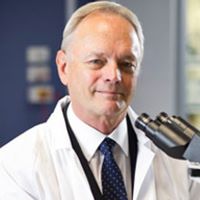 The Clarke Medal is awarded each year for distinguished research in the natural sciences, conducted in Australia and its territories, in the fields of botany, zoology, and geology (considered in rotation). For 2021, the medal has been awarded in zoology.
The Clarke Medal is awarded each year for distinguished research in the natural sciences, conducted in Australia and its territories, in the fields of botany, zoology, and geology (considered in rotation). For 2021, the medal has been awarded in zoology.
Distinguished Professor Emeritus John Aitken, of the College of Engineering, Science and Environment at the University of Newcastle, is a global leader in reproductive biology and the 2012 NSW Scientist of the Year. Based at the University of Newcastle, he is President of the International Society of Andrology, Director of the Priority Research Centre in Reproductive Science and Professor of Biological Sciences. Professor Aitken heads up a research team that is making significant inroads into human and animal reproductive issues. His research achievements include identifying a major cause of male infertility that has resulted in new methods of therapeutic intervention, and the development of a contraceptive that would prevent pregnancy and inhibit the spread of sexually transmitted diseases.
Professor Aitken currently has an active program of research to develop non-surgical methods of sterilisation for domestic and feral animals. Nationwide, the damage done by vertebrate pests to Australian biodiversity and agricultural productivity amounts to $1 billion per annum. In response to this need, Professor Aitken’s research group has developed a technology for the non-surgical sterilization of mammalian species that opens up a market worth billions of dollars per annum.
Return to the top of the page
Edgeworth David Medal
Dr Arnold Lining Ju
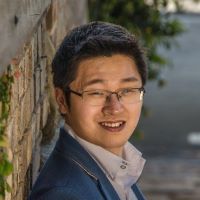 The Edgeworth David Medal is awarded annually for distinguished research by a young scientist under the age of 35 years for work undertaken mainly in Australia or contributing to the advancement of Australian science.
The Edgeworth David Medal is awarded annually for distinguished research by a young scientist under the age of 35 years for work undertaken mainly in Australia or contributing to the advancement of Australian science.
Dr Lining Arnold Ju, an ARC DECRA Fellow in the Faulty of Engineering at the University of Sydney, employs innovative and cutting-edge research in mechanical engineering and biomechanics to open new avenues for the diagnosis, monitoring, and treatment of blood clotting diseases. In just 8 years since his PhD award and under 35 years of age, he has been an ARC DECRA Fellow and a Heart Foundation Future Leader Fellow and has won awards such as the MIT TR35 Innovator, the Australian Museum Eureka Prize and NSW Young Tall Poppy. His academic standing is on a steep upward trajectory nationally and internationally. He is now spearheading his own Cardiovascular Biomechanics Lab for organ-on-chip blood clot assessment and the development of future cardiovascular point-of-care tests and telehealth microdevices.
Return to the top of the page
History and Philosophy of Science Medal
Professor Dean Rickles
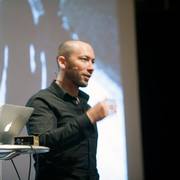 The Society’s History and Philosophy of Science Medal is awarded annually to recognise outstanding achievements in the History and Philosophy of Science, especially the study of ideas, institutions, and individuals of significance to the practice of the natural sciences in Australia.
The Society’s History and Philosophy of Science Medal is awarded annually to recognise outstanding achievements in the History and Philosophy of Science, especially the study of ideas, institutions, and individuals of significance to the practice of the natural sciences in Australia.
Professor Dean Rickles, who is Professor of History and Philosophy of Modern Physics at the University of Sydney, has made seminal contributions to both the history and the philosophy of modern physics, creating two-way traffic from conceptual and philosophical issues to historical ones. His work has been used and praised by philosophers, historians, and physicists alike. In particular, he has been a central figure in the emerging field of history and philosophy of quantum gravity (the as yet unknown theory that would treat our two great fundamental theories of physics, general relativity and quantum theory, in a single framework), and has driven much of the current research landscape. He has been responsible for many firsts, including the first detailed histories of string theory, praised by its chief architect (John Schwarz), and of quantum gravity, and the first philosophical papers on dualities and loop quantum gravity.
Poggendorff Lectureship
Professor Richard Trethowan
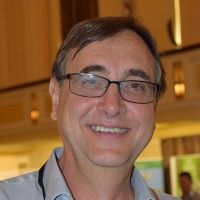 The Poggendorff Lecture is awarded periodically for research in plant biology and more broadly agriculture.
The Poggendorff Lecture is awarded periodically for research in plant biology and more broadly agriculture.
Professor Richard Trethowan, Director of the IA Watson Research Centre, Narrabri Plant Breeding Institute and a member of the School of Life and Environmental Sciences at the University of Sydney, is a world-leading plant breeder. His work has improved our understanding of the genetic control of heat resistance in wheat, an important trait globally, and he contributed significantly to the development of new technologies including hybrid wheat systems and the application of genomic selection to plants. His work led to the development of unique genetic wheat strains that have impacted the productivity of agricultural systems in many countries. These impacts include the release of wheat cultivars to farmers from his experimental materials, either directly, through their use as parents, or the application of knowledge generated from his research.
Return to the top of the page
Pollock Memorial Lectureship
Professor Geraint Lewis FRSN FLSW
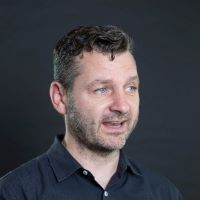
The Pollock Memorial Lectureship has been awarded approximately every four years since 1949 and is sponsored by the University of Sydney and the Society in memory of Professor J.A. Pollock, Professor of Physics at the University of Sydney (1899-1922) and a member of the Society for 35 years.
As an outstanding researcher, Professor Geraint Lewis, Professor of Astrophysics in the Sydney Institute for Astrophysics in the School of Physics of the University of Sydney, focuses on cosmological mysteries. Through exquisite and extensive observations with the world’s largest telescopes coupled with synthetic universes generated on immense supercomputers, he hunts for the dark side — the dark matter and dark energy that shape the cosmos. With significant discoveries that confront our ideas on the formation and evolution of galaxies, he has published extensively in international journals. His passion for cosmology and physics is reflected in his teaching and student supervision, as well as an extensive outreach program that brings the mysteries of the universe to diverse international audiences.
Return to the top of the page
Warren Prize (Medal and Lectureship)
Dr Noushin Nasiri
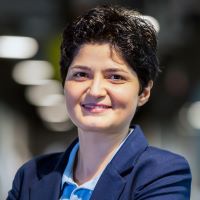
The Warren Prize consists of a medal and lectureship in recognition of research by engineers and technologists in their early to mid-career. Early-career researchers will have established a publication record in top-tier journals and wish to reach a broader audience, while mid-career researchers will have completed a larger body of work relevant to society.
Dr Noushin Nasiri is a Senior Lecturer in the Macquarie University School of Engineering and is Head of the Macquarie Nanotech Laboratory. She is a dynamic early career researcher whose work, which is highly regarded and recognised, combines multidisciplinary techniques in the field of nanomaterials, nanoelectronics, and chemistry to develop innovative nanomaterials that transform nanosensing technologies. Her work has already resulted in practical, beneficial outcomes, such as the world’s first wearable sensor, capable of differentiating between UVA and UVB rays, that alerts users in real-time to over-exposure to UV radiation. The technology is tailored for individuals, taking into account different skin types when calculating sun-safe limits.
Jak Kelly Award
Mx Zain Mehdi
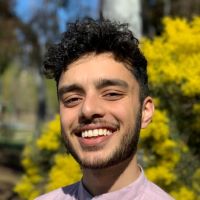 The Jak Kelly Award was created in honour of Professor Jak Kelly (1928–2012), who was Head of Physics at the University of NSW from 1985 to 1989, was made an Honorary Professor of the University of Sydney in 2004, and was President of the Royal Society of NSW in 2005 and 2006. Its purpose is to encourage excellence in postgraduate research in physics. The award is supported by the Royal Society of NSW and the Australian Institute of Physics, NSW branch. The winner is selected from a shortlist of candidates who made presentations at the most recent Australian Institute of Physics (NSW Branch) postgraduate awards meeting.
The Jak Kelly Award was created in honour of Professor Jak Kelly (1928–2012), who was Head of Physics at the University of NSW from 1985 to 1989, was made an Honorary Professor of the University of Sydney in 2004, and was President of the Royal Society of NSW in 2005 and 2006. Its purpose is to encourage excellence in postgraduate research in physics. The award is supported by the Royal Society of NSW and the Australian Institute of Physics, NSW branch. The winner is selected from a shortlist of candidates who made presentations at the most recent Australian Institute of Physics (NSW Branch) postgraduate awards meeting.
Zain Mehdi, a PhD Candidate in the Department of Quantum Science and Technology at the Australian National University, investigates quantum physics in the mesoscopic regime — the intermediate scale between the microscopic world of individual atoms and the macroscopic world of classical objects. Their work focuses on theoretical investigations of exotic phenomena, such as superfluidity and turbulence, in cold atom systems, and has led to four publications in high-impact journals.
Royal Society of New South Wales Scholarships
The Royal Society Scholarships are awarded annually in order to acknowledge outstanding achievements by young researchers in any field of science. Applicants must be enrolled as research students in a university in either NSW or the ACT on 1 January in their year of nomination.
For 2021, three RSNSW Scholarships have been awarded:
- Mr Sajad Abolpour Moshizi — PhD Candidate, Macquarie University
- Mr Harry Marquis — PhD Candidate, University of Sydney
- Mr Kevin (The Huong) Chau — Master of Research candidate, Macquarie University
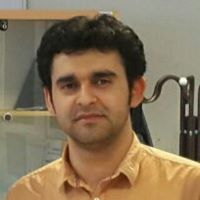
Sajad Abolpour Moshizi is conducting the development of hair-cell sensors for use inside the semicircular canals in the inner ear to treat patients suffering from balance problems and gaze instability. He is a recipient of the Biomolecular Discovery Research Centre (BDRC) Postgraduate Prize and winner of the best internationally peer-reviewed paper by a postgraduate student as a first author accepted for publication (“Development of an ultrasensitive, and flexible piezoresistive flow sensor using vertical graphene nanosheets”) in Nano-Micro Letters. He is a recipient of a Macquarie University Postgraduate Research Fund (PGRF) scheme of up to $3000 and has more than 30 peer-reviewed journal articles.
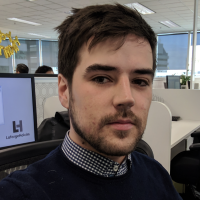
Harry Marquis is a PhD candidate in the School of Physics at the University of Sydney. His research is primarily conducted at the Department of Nuclear Medicine, Royal North Shore Hospital, under the supervision of Professor Dale Bailey. His project is titled “Development of a Dosimetry Platform for Theranostic Agents” and his key research interests are in quantitative PET and SPECT imaging, diagnostic medical imaging and image processing, theranostics and radionuclide therapy dosimetry, radiobiology and radiation safety. Harry’s research has already gained international recognition, receiving the Arthur Weis Award in 2020 for outstanding original work in radiation safety and dosimetry from the Society of Nuclear Medicine and Molecular Imaging (SNMMI). In 2021, his work was featured in the SNMMI plenary lecture highlights “Basic Science Instrumentation & Data analysis: Image Generation” session and was also shortlisted for the best poster award in the physics track.
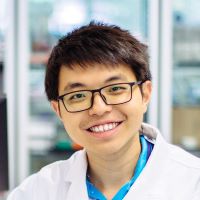 Kevin Chau joined the Analytical Glycoimmunology team at Macquarie University (MQ) in April 2018 as an undergraduate volunteer to study the removal of synapses by microglial receptors in the brain during sleep. After completing his course work to near-perfection, he decided to undertake a Master of Research (MRes) degree focusing on platelet glycobiology. During the past 3–4 years he has shown great potential and talent, demonstrated, for example, by the award of multiple prestigious scholarships and prizes during his coursework progress. His research focuses on mapping the glycoproteome of human platelets.
Kevin Chau joined the Analytical Glycoimmunology team at Macquarie University (MQ) in April 2018 as an undergraduate volunteer to study the removal of synapses by microglial receptors in the brain during sleep. After completing his course work to near-perfection, he decided to undertake a Master of Research (MRes) degree focusing on platelet glycobiology. During the past 3–4 years he has shown great potential and talent, demonstrated, for example, by the award of multiple prestigious scholarships and prizes during his coursework progress. His research focuses on mapping the glycoproteome of human platelets.
Awards for Service to the Society
Royal Society of NSW Citations
The Royal Society of NSW Citations are awarded to Members or Fellows of the Society who have made significant contributions to the Society, but who have not been recognised in any other way. A maximum of three Citations may be awarded in any one year.
The Honourable John Dowd AO QC FRSN
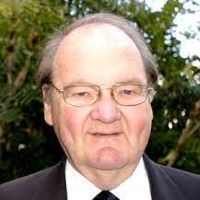 Having previously served in prominent roles in the NSW Parliament and NSW Government, in 2002, The Honourable John Dowd AO QC FRSN was elected as Chancellor of Southern Cross University, serving until his retirement in 2014. In 2005, he was appointed Protection Ambassador for ActionAid Australia (previously AUSTCARE) and became a Director of the organisation in 2008 and President in 2009. In May 2011, Dowd launched The Justice Campaign in a show of support for human rights and justice with a focus on alleged abuses at Guantanamo Bay, Abu Ghraib, and elsewhere with a particular focus on David Hicks.
Having previously served in prominent roles in the NSW Parliament and NSW Government, in 2002, The Honourable John Dowd AO QC FRSN was elected as Chancellor of Southern Cross University, serving until his retirement in 2014. In 2005, he was appointed Protection Ambassador for ActionAid Australia (previously AUSTCARE) and became a Director of the organisation in 2008 and President in 2009. In May 2011, Dowd launched The Justice Campaign in a show of support for human rights and justice with a focus on alleged abuses at Guantanamo Bay, Abu Ghraib, and elsewhere with a particular focus on David Hicks.
John Dowd provided the Royal Society of NSW with outstanding service in 2020 when he provided extensive pro bono legal advice over an extended period of time on the revision of the Society’s Rules which had not been comprehensively reviewed since 1968. This exercise was complex and extensive and involved liaison with a wide range of members of the Society. It resulted in a modernised set of Rules which will stand the Society in good stead for many years to come. This outcome could not have been achieved without his input.
Mr Hubert Regtop MRSN
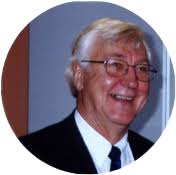 Hubert Regtop MRSN is a biochemist and microbiologist with a Master of Science from the University of NSW (1973). He has a long and esteemed career as a university lecturer, research fellow, and research director of publicly listed companies, receiving multi-million dollar grants, and responsible for hospital funded projects and partnerships with universities in the US and UK. In the mid-nineties, he was responsible for introducing standardised herbs in Australia. As a director of Trilogie Pty Ltd, established in 1994, he currently consults and lectures to major health food companies, doctors, and pharmacists in Australia, on the role of nutrition in medicine. He has authored twenty-two publications and has had twenty-three patents approved. He has been a long-standing Chair of the Society’s Southern Highlands Branch to which he has made a significant contribution over ten years maintaining an active branch with a strong events program.
Hubert Regtop MRSN is a biochemist and microbiologist with a Master of Science from the University of NSW (1973). He has a long and esteemed career as a university lecturer, research fellow, and research director of publicly listed companies, receiving multi-million dollar grants, and responsible for hospital funded projects and partnerships with universities in the US and UK. In the mid-nineties, he was responsible for introducing standardised herbs in Australia. As a director of Trilogie Pty Ltd, established in 1994, he currently consults and lectures to major health food companies, doctors, and pharmacists in Australia, on the role of nutrition in medicine. He has authored twenty-two publications and has had twenty-three patents approved. He has been a long-standing Chair of the Society’s Southern Highlands Branch to which he has made a significant contribution over ten years maintaining an active branch with a strong events program.
Mr Richard Wilmott MRSN
![]() Richard Wilmott MRSN was the Principal of the accounting firm RJ Wilmott & Co. In 2013 he was approached by Council to undertake the audit of the Society’s financial records from 2011 onwards. Richard completed the audit on a pro bono basis and then was persuaded to become the Society’s Honorary Treasurer and member of the Executive, positions which he held until March 2021. In 2014, the Society moved all its administration to a specialist organisation and Richard worked closely with that organisation to update and improve all aspects of the Society’s financial record keeping and reporting.
Richard Wilmott MRSN was the Principal of the accounting firm RJ Wilmott & Co. In 2013 he was approached by Council to undertake the audit of the Society’s financial records from 2011 onwards. Richard completed the audit on a pro bono basis and then was persuaded to become the Society’s Honorary Treasurer and member of the Executive, positions which he held until March 2021. In 2014, the Society moved all its administration to a specialist organisation and Richard worked closely with that organisation to update and improve all aspects of the Society’s financial record keeping and reporting.
Royal Society of NSW Awards for 2022
The Council of the Royal Society of New South Wales is pleased to announce its Awards for 2022 at the 1309th Ordinary General Meeting, held at the State Library on NSW on the evening of 7 December 2022.
These include the Cook Medal, which is the Society’s highest honour, and awards for research and scholarly excellence. This year, there have been no awards for service to the Society.
The award winners are listed below, together with links to information about the awards and their recipients.
The Cook Medal
James Cook Medal — Emeritus Professor John Church AO FAA FTSE FAMS FAGU
Awards for Research Excellence
Clarke Medal and Lecture (Geology) — Professor Andrew (Andy) Baker FAGU
Edgeworth David Medal — Dr Tim Doherty
History and Philosophy of Science Medal — Emeritus Professor Stephen Gaukroger FRSN FAHA FRHistS FRSA
Burfitt Prize — Distinguished Professor Susan Scott FAA FEurASc
Liversidge Memorial Lecture — Professor Timothy Schmidt FRSN FRACI CChem
Warren Prize — Professor Anita Wing Yi Ho-Baillie FRSN FAIP
Jak Kelly Award — Mr Shankar Dutt
Royal Society of NSW Scholarships — Ms Clara Chung Ming Liu, Mr Thomas Mesaglio, and Ms Anyang (Anya) Zhao
James Cook Medal
Emeritus Professor John Alexander Church AO FAA FTS FAMS FAGU
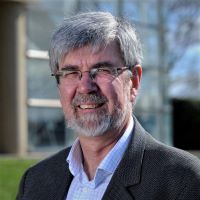
The James Cook Medal is awarded periodically by the Royal Society of New South Wales for outstanding contributions to science and human welfare in and for the Southern Hemisphere.
John Church, an Emeritus Professor in the Climate Change Research Centre, UNSW Sydney is the world’s pre-eminent authority on the rate of 20th century sea-level rise, with his work on quantifying historical changes having been pivotal in revolutionising our modern view of sea level rise, including the first detection of the acceleration in the rate of rise. His ground-breaking papers, published with both national and international colleagues, explain a long-standing conundrum about the causes for the observed 20th century sea-level rise. He has provided substantial improvements in estimates of ocean heat uptake, resolving discrepancies between observations and models as well as the causes. In addition, he has been an international leader in sea level assessments and projections and his work has established that anthropogenic climate forcing is responsible for the majority of observed sea level rise since 1970.
Awards For Research Excellence
Clarke Medal and Lecture (Geology)
Professor Andrew (Andy) Baker FAGU
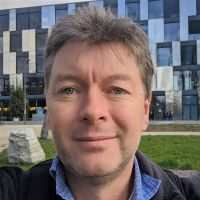 The Clarke Medal is awarded each year for distinguished research in the natural sciences, conducted in Australia and its territories, in the fields of botany, zoology, and geology (considered in rotation). For 2022, the medal has been awarded in geology.
The Clarke Medal is awarded each year for distinguished research in the natural sciences, conducted in Australia and its territories, in the fields of botany, zoology, and geology (considered in rotation). For 2022, the medal has been awarded in geology.
Professor Andy Baker, of the School of Biological, Earth & Environmental Sciences at UNSW Sydney, is an international authority in cave science, hydrology and geochemistry, especially as it pertains to our understanding of karst — complex underground systems formed from dissolution of soluble rocks, characterised by sinkholes, caves and speleothems (e.g., stalagmites). Having led over AU$10M in external projects in NSW since 2010, he has also published more than 260 internationally refereed papers, including highly-cited publications in Nature, Nature Communications, and Science.
Edgeworth David Medal
Dr Tim S. Doherty
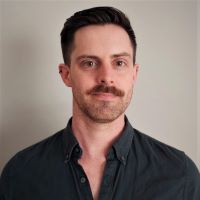 The Edgeworth David Medal is awarded annually for distinguished research by a young scientist under the age of 35 years for work undertaken mainly in Australia or contributing to the advancement of Australian science.
The Edgeworth David Medal is awarded annually for distinguished research by a young scientist under the age of 35 years for work undertaken mainly in Australia or contributing to the advancement of Australian science.
Dr Tim Doherty, an ARC DECRA Fellow in the School of Life and Environmental Sciences at the University of Sydney, has made extraordinary contributions in the fields of predator-prey dynamics, movement ecology and fire ecology, emerging as a pre-eminent scientist of his generation in developing these fields and in exploring how each is influenced by human modification of the environment. Dr Doherty’s transformative insights have been achieved by combining field experiments with novel theoretical frameworks and global syntheses. Key contributions include revealing that invasive predators have contributed to more than 50% of bird, mammal, and reptile extinctions globally, and conducting vital applied field research on fire and invasive species that informs conservation policy and management.
History and Philosophy of Science Medal
Emeritus Professor Stephen Gaukroger FRSN FAHA FRHistS FRSA
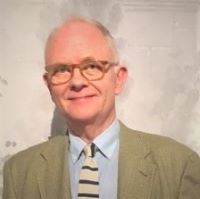 The Society’s History and Philosophy of Science Medal is awarded annually to recognise outstanding achievements in the History and Philosophy of Science, especially the study of ideas, institutions, and individuals of significance to the practice of the natural sciences in Australia.
The Society’s History and Philosophy of Science Medal is awarded annually to recognise outstanding achievements in the History and Philosophy of Science, especially the study of ideas, institutions, and individuals of significance to the practice of the natural sciences in Australia.
Emeritus Professor Stephen Gaukroger is one of the world’s leading historians of science and philosophy. Educated at the University of London and the University of Cambridge, he has held positions at Cambridge, Melbourne, and Sydney, as well as visiting professorships at Oxford, London, Aberdeen, and the École normale supérieure – Paris Sciences et Lettres. Now Emeritus Professor of History of Philosophy and History of Science at the University of Sydney, he is the author of sixteen books, including an internationally renowned intellectual biography of Descartes (1995). His work has been translated in Arabic, Chinese, French, German, Italian, Portuguese, and Russian. His major work is the 4-volume study of science and the shaping of modernity: The Emergence of a Scientific Culture, 1210-1685 (2006); The Collapse of Mechanism and the Rise of Sensibility: 1680-1760 (2010); The Natural and the Human, 1739-1841 (2016); Civilization and the Culture of Science, 1795-1935 (2020).
Burfitt Prize Lectureship
Distinguished Professor Susan M. Scott FAA FEurASc
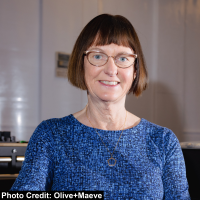 The Walter Burfitt Prize, established as a result of a generous gift to the Society by Dr W.F. Burfitt BA MB ChM BSc, is awarded at intervals of three years for research in pure or applied science. The winner must be resident in Australia or New Zealand, and whose papers and other contributions published during the past six years are deemed of the highest scientific merit.
The Walter Burfitt Prize, established as a result of a generous gift to the Society by Dr W.F. Burfitt BA MB ChM BSc, is awarded at intervals of three years for research in pure or applied science. The winner must be resident in Australia or New Zealand, and whose papers and other contributions published during the past six years are deemed of the highest scientific merit.
Distinguished Professor Susan Scott, from the Australian National University College of Science, is an internationally recognised mathematical physicist who has made fundamental advances in our understanding of the fabric of space-time in general relativity, and in gravitational wave science. She has pioneered breakthrough results probing the existence and nature of space-time singularities, the global structure of space-time, and possible initial and final endstates for cosmological models representing our Universe. Professor Scott has also been a pioneer in the analysis of astrophysical signatures in gravitational wave experiments, including the searches for gravitational waves from asymmetric neutron stars and from inspiralling binary systems of black holes and neutron stars. She has played an important role in the development and promotion of gravitational research worldwide, and a leading role in Australia’s participation in the first direct detection of gravitational waves in 2015.
Liversidge Lectureship
Professor Timothy W. Schmidt FRSN FRACI CChem
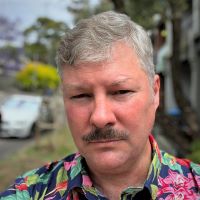
The Liversidge Lecture, established under the terms of a bequest to the Society by Professor Archibald Liversidge MA LLD FRS, who was Professor of Chemistry in the University of Sydney from 1874 to 1907 and was one of the Council members who sponsored the Society's Act of Incorporation in 1881, is awarded at intervals of two years for the purpose of encouragement of research in Chemistry.
Professor Timothy Schmidt, of the School of Chemistry at UNSW Sydney, is internationally recognised as a molecular spectroscopist working on diverse problems from astrophysics to renewable energy. In the gas phase, he has recorded spectra of many hydrocarbon radicals for the first time and discovered new electronic excitations of the dicarbon molecule. In the condensed phase, his work concentrates on triplet-triplet annihilation and singlet fission for solar energy applications. His work has been recognised by a number of prizes including the Broida Prize (International Symposium on Free Radicals 2015), the Coblentz Award (2010), the RACI Physical Chemistry Lectureship and the RACI Physical Chemistry Medal (2021).
Return to the top of the page
Warren Prize
Professor Anita Wing Yi Ho-Baillie FRSN FAIP
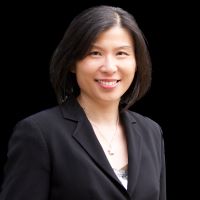
The Warren Prize consists of a medal and lectureship in recognition of research by engineers and technologists in their early to mid-career. Early-career researchers will have established a publication record in top-tier journals and wish to reach a broader audience, while mid-career researchers will have completed a larger body of work relevant to society.
Professor Anita Ho-Baillie is a pioneer in the development of next-generation solar cells that are key to transitioning to a carbon-free-economy. Focussing on multi-junction solar cells, the aim of her research is to increase their power conversion efficiency towards 40% and 50% when the efficiencies of commercially available silicon solar cells are around 25%. In addition, her recent breakthroughs in improving the durability of perovskite solar cells are critical steps towards commercial viability. Despite the early stage of her career, her outstanding contributions to the important field of energy research are recognised around the world. Four times a Clarivate Analytics Highly Cited Researcher, in 2021 she was named Top Australian Researcher in Sustainable Energy by The Australian and by leading journal ACS Energy Letters, one of 30 leaders in advancing perovskite solar cells and one of 40 Women Scientists at the Forefront of Energy Research in the World.
Jak Kelly Award
Mr Shankar Dutt
 The Jak Kelly Award was created in honour of Professor Jak Kelly (1928–2012), who was Head of Physics at the University of NSW from 1985 to 1989, was made an Honorary Professor of the University of Sydney in 2004, and was President of the Royal Society of NSW in 2005 and 2006. Its purpose is to encourage excellence in postgraduate research in physics. The award is supported by the Royal Society of NSW and the Australian Institute of Physics, NSW branch. The winner is selected from a shortlist of candidates who made presentations at the most recent Australian Institute of Physics (NSW Branch) postgraduate awards meeting.
The Jak Kelly Award was created in honour of Professor Jak Kelly (1928–2012), who was Head of Physics at the University of NSW from 1985 to 1989, was made an Honorary Professor of the University of Sydney in 2004, and was President of the Royal Society of NSW in 2005 and 2006. Its purpose is to encourage excellence in postgraduate research in physics. The award is supported by the Royal Society of NSW and the Australian Institute of Physics, NSW branch. The winner is selected from a shortlist of candidates who made presentations at the most recent Australian Institute of Physics (NSW Branch) postgraduate awards meeting.
Shankar Dutt is a PhD Candidate in the Research School of Physics at the Australian National University. He investigates a nanopore-based sensing platform for the detection of different biomolecules in complex solutions including DNA, proteins and antibodies. This allows tailoring of the biomolecules' translocation kinetics and, combined with artificial intelligence, aims at early diagnosis of neurodegenerative disorders such as Alzheimer's Disease and Multiple Sclerosis.
Royal Society of New South Wales Scholarships
The Royal Society Scholarships are awarded annually in order to acknowledge outstanding achievements by young researchers in any field of science. Applicants must be enrolled as research students in a university in either NSW or the ACT on 1 January in their year of nomination.
For 2021, three RSNSW Scholarships have been awarded:
- Miss Clara Chung Ming Liu — PhD Candidate, School of Biomedical Engineering, University of Technology Sydney
- Mr Thomas Mesaglio — PhD Candidate, School of Biological, Earth, and Environmental Sciences, UNSW Sydney
- Ms Anyang (Anya) Zhao — PhD Candidate, John Curtin School of Medical Research, Australian National University
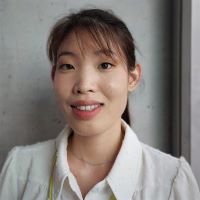 Miss Clara Liu Chung Ming is a PhD candidate in the School of Biomedical Engineering at the University of Technology Sydney under the supervision of Dr Carmine Gentile. Her research focusses on the bioengineering of advanced 3D in vitro models of the human heart pathophysiology, including “the-heart attack-in-a-Petri-dish” and heart failure using patient derived-stem cells. In particular, Clara has demonstrated that acetylcholine (a natural compound produced by our body) plays a protective role against myocardial infarction (heart attack) and drug-induced heart failure using her cells. Clara’s multidisciplinary project is carried in collaboration with the University of Sydney/Charles Perkins Centre/Sydney Heart Bank, Royal Prince Alfred Hospital and Baker Heart and Diabetes Institute/Monash University. Clara’s research has focussed also on the effects of Sars-CoV-2 on human heart pathophysiology, as well as the bioengineering of pre-eclampsia-induced heart failure using patient-derived stem cells. Her research has received several awards, including Australian Government Research Training Program Stipend (2021), FEIT HDR Women in Engineering and IT awards (2021), ASBTE Rapid Fire Presentation Award (2022) and NSW Education Waratah Scholarship (2022).
Miss Clara Liu Chung Ming is a PhD candidate in the School of Biomedical Engineering at the University of Technology Sydney under the supervision of Dr Carmine Gentile. Her research focusses on the bioengineering of advanced 3D in vitro models of the human heart pathophysiology, including “the-heart attack-in-a-Petri-dish” and heart failure using patient derived-stem cells. In particular, Clara has demonstrated that acetylcholine (a natural compound produced by our body) plays a protective role against myocardial infarction (heart attack) and drug-induced heart failure using her cells. Clara’s multidisciplinary project is carried in collaboration with the University of Sydney/Charles Perkins Centre/Sydney Heart Bank, Royal Prince Alfred Hospital and Baker Heart and Diabetes Institute/Monash University. Clara’s research has focussed also on the effects of Sars-CoV-2 on human heart pathophysiology, as well as the bioengineering of pre-eclampsia-induced heart failure using patient-derived stem cells. Her research has received several awards, including Australian Government Research Training Program Stipend (2021), FEIT HDR Women in Engineering and IT awards (2021), ASBTE Rapid Fire Presentation Award (2022) and NSW Education Waratah Scholarship (2022).
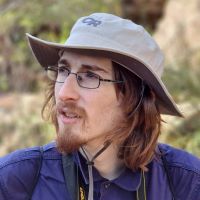 Mr Thomas Mesaglio works on quantifying our knowledge of Australian plant biodiversity, developing identification tools, survey and species description protocols and general data frameworks for improving this knowledge. Although much of his research focuses on analyses of ‘citizen science’ data, he has published scientific papers in disciplines including marine forensics, bushfire recovery and invertebrate ecology and taxonomy. As part of the Environment Recovery Project team, he received the Department of Industry, Science and Resources’ 2022 Eureka Prize for Innovation in Citizen Science. He has published two books: a guide to scientific etymology and a seashell field guide and is a curator and forum moderator on the citizen science platform iNaturalist, with 39,000 observations and 227,000 identifications made for other users.
Mr Thomas Mesaglio works on quantifying our knowledge of Australian plant biodiversity, developing identification tools, survey and species description protocols and general data frameworks for improving this knowledge. Although much of his research focuses on analyses of ‘citizen science’ data, he has published scientific papers in disciplines including marine forensics, bushfire recovery and invertebrate ecology and taxonomy. As part of the Environment Recovery Project team, he received the Department of Industry, Science and Resources’ 2022 Eureka Prize for Innovation in Citizen Science. He has published two books: a guide to scientific etymology and a seashell field guide and is a curator and forum moderator on the citizen science platform iNaturalist, with 39,000 observations and 227,000 identifications made for other users.
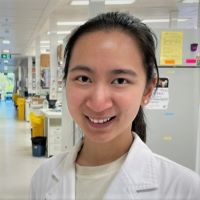 Ms Anyang Zhao's research is focused on the clinically important foodborne pathogen called Listeria, which causes 20-30% of death in humans. She has identified that Listeria infection triggers inflammation and cell death, which are biological processes crucial for overcoming Listeria infection. Excessive inflammation caused by the immune system while fighting off Listeria infection can lead to sepsis and death. Anyang’s research aims to inhibit such excessive inflammation and could lead to the development of therapies against sepsis. During her first year of PhD study, Anyang published a preview article in Cell Host & Microbe (2022) as co-first author, and further co-authored two primary research articles in Science Immunology (2022) and Nature Communications. Her research achievements have been recognised by multiple prizes, scholarships and grants.
Ms Anyang Zhao's research is focused on the clinically important foodborne pathogen called Listeria, which causes 20-30% of death in humans. She has identified that Listeria infection triggers inflammation and cell death, which are biological processes crucial for overcoming Listeria infection. Excessive inflammation caused by the immune system while fighting off Listeria infection can lead to sepsis and death. Anyang’s research aims to inhibit such excessive inflammation and could lead to the development of therapies against sepsis. During her first year of PhD study, Anyang published a preview article in Cell Host & Microbe (2022) as co-first author, and further co-authored two primary research articles in Science Immunology (2022) and Nature Communications. Her research achievements have been recognised by multiple prizes, scholarships and grants.

